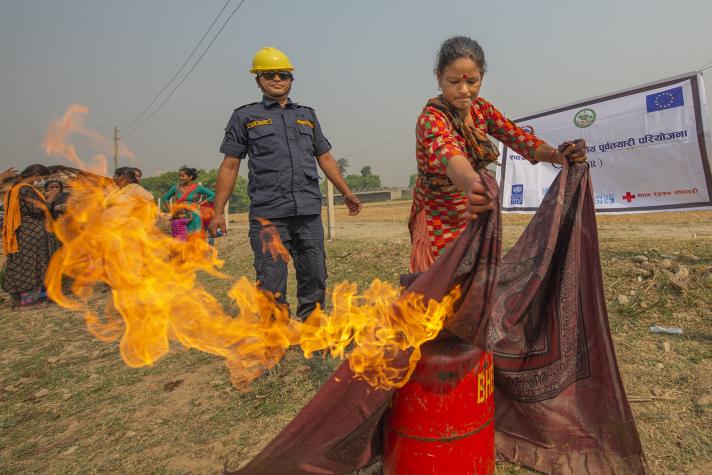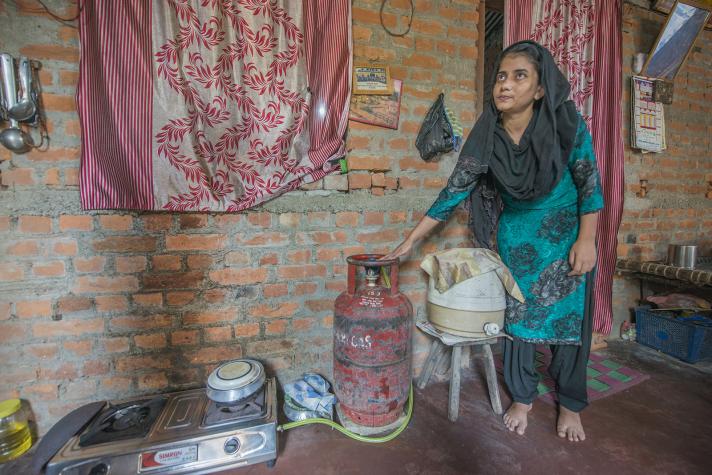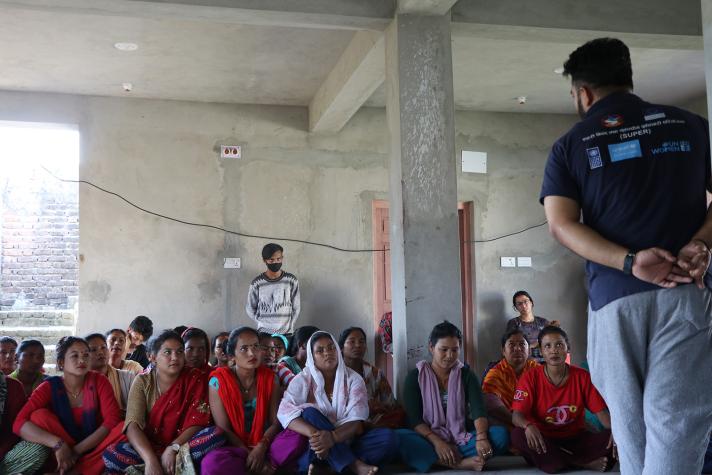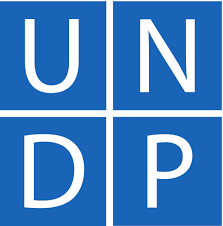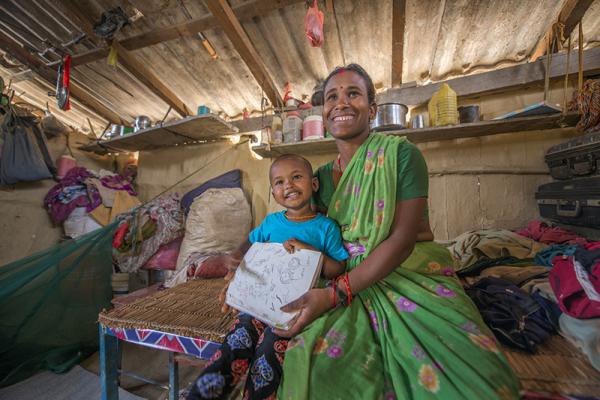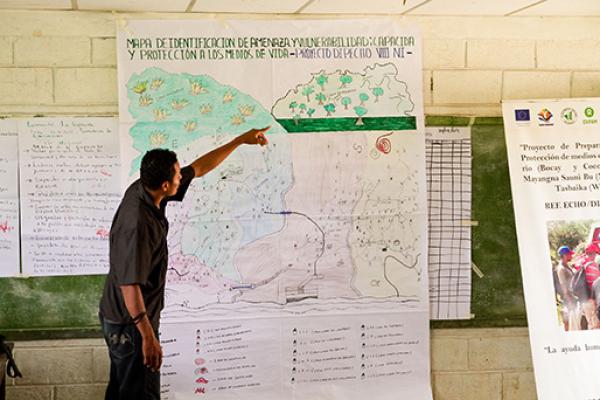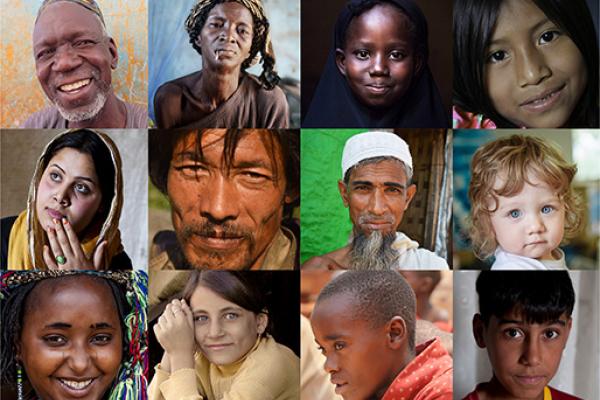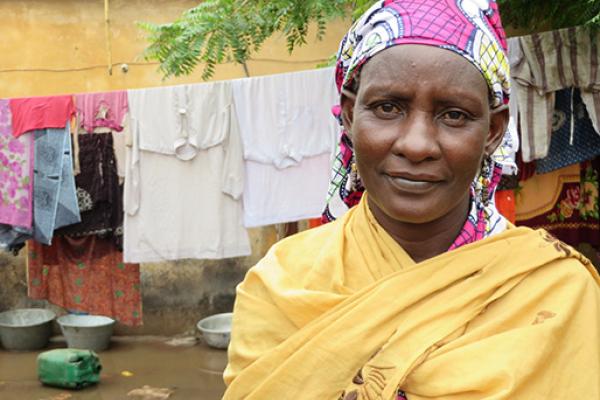One home fire can wipe out an entire neighbourhood in western Nepal’s urban areas, where buildings are often in poor condition and built close together. An EU-funded initiative teaches women, who are often the first responders, how to battle flames before they spread.
It was a slow afternoon when Nazma Salmani sat down on her “charpai”, a traditional woven stool commonly used in Nepal, while her husband replaced the gas cylinder in their house. He was hunched over the cylinder when suddenly the gas started leaking and caught fire.
“Ab kya kare!”, Nazma thought, “what should I do?” She knew that if the fire spread, it would be disastrous not only for her family, but for the entire neighbourhood.
Many of the buildings in Dhangadhi city are in poor condition and stand dangerously close to one another. When hit by disaster – like a quickly spreading fire - the impact is devastating and the capacity to respond, limited.
But the family was prepared. “I had taken a firefighting training,” says Nazma.
“During the training, I learned how to put out fires using a damp cloth. And the best thing I did was to share what I learned with my daughter. She is the one who put out the fire in our house,” she explained.
“I am so proud that my daughter remained calm and was able to follow the instructions I had shared with her.”
The training Nazma had attended was the result of wider efforts to strengthen the disaster preparedness and response in Nepal.
Thanks to EU humanitarian funding, UNDP, UNICEF, and UN Women work with local, provincial and federal governments to increase their preparedness for urban disasters and earthquakes in the western regions of the country.
Efforts to strengthen the system on different levels range from setting up Emergency Centres that operate 24/7 to respond to disasters, to trainings organised for community members like Nazma, who are often the first responders.

